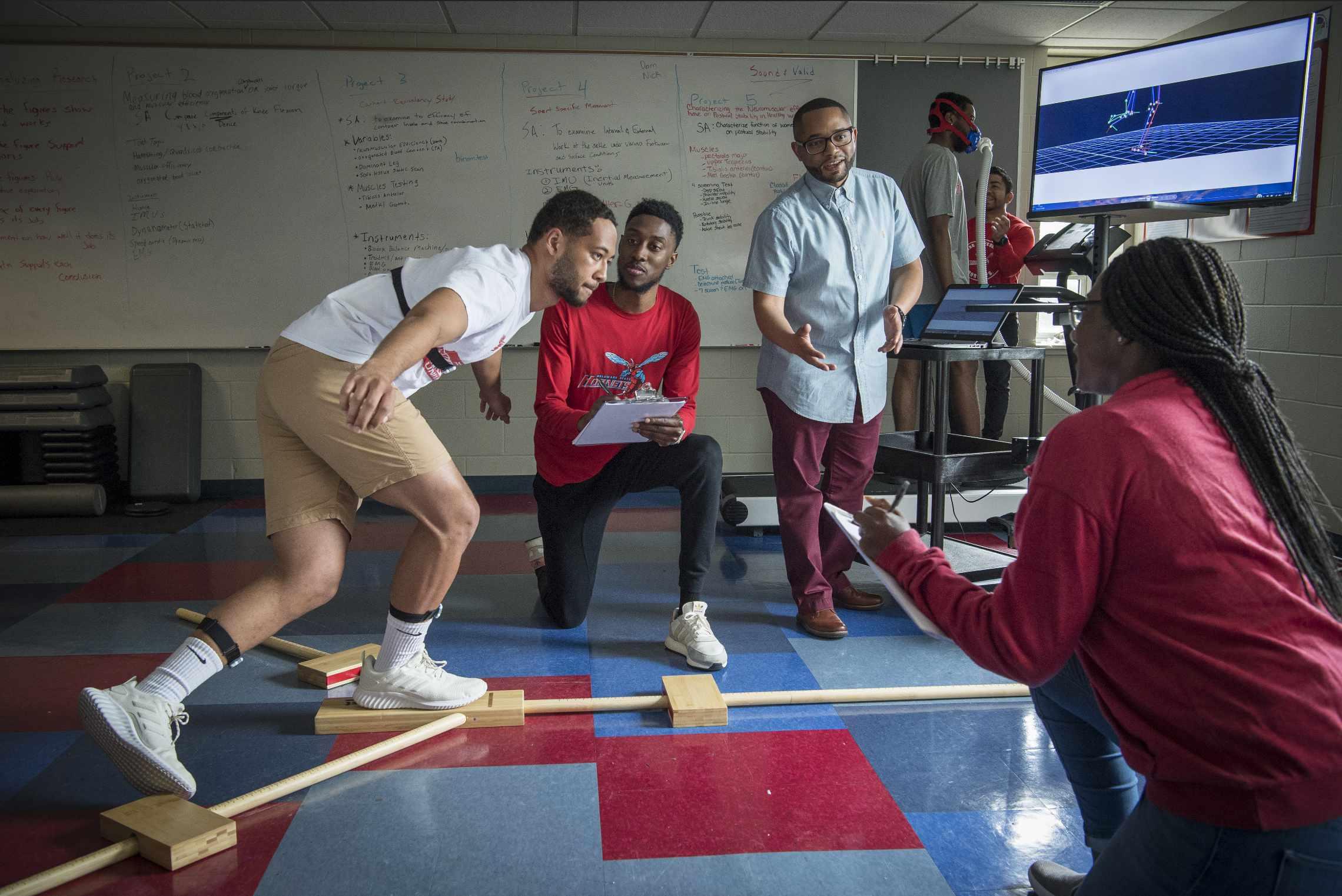Department of Public and Allied Health Sciences
The Department of Public and Allied Health Sciences is an interdisciplinary department that prepares students for a wide variety of careers, graduate education, and professional health education. The department is composed of two unique, yet related majors: Public Health and Kinesiology and the Occupational Therapy, MOT program. Regardless of the selected major, students must complete the General Education Program as required of all University students (See General Education Requirements).
MISSION
The mission of the Department of Public and Allied Health Sciences is to prepare undergraduates for careers and graduate education in kinesiology, exercise science, human performance, allied health disciplines, public health and community health. Graduates of these majors are provided with theoretical, laboratory, research, service learning, clinical, and community service opportunities to advance knowledge, ethical practice, and service in future endeavors. The department provides meaningful interaction among its constituents, the campus community, and the community at-large through the use of educational and research methodologies, service learning, and community service activities. Moreover, the department promotes and provides programs which seek to remedy current under-representation of minorities in allied health, fitness and wellness, exercise/movement science, kinesiological, allied health, community health, and public health professions. The department is dedicated to meeting the educational and professional preparation needs of individuals who plan to interface with the diverse and ever-changing society of the 21st century.
PHILOSOPHY
The philosophy of the Department of Public and Allied Health Sciences is to develop effective and ethical practitioners, clinicians, and researchers who possess comprehensive content knowledge, practice and ethical behaviors; utilize appropriate assessment procedures and techniques; demonstrate effective interpersonal communication skills; display the ability to problem solve and develop strategies for successful outcomes; employ technology in a variety of settings; and apply successful strategies through proven models of research, best practices, and service.
EXPECTED LEARNING OUTCOMES
The faculty believes that every student in a major within the Department of Public and Allied Health Sciences should have access to a high quality program that prepares students or careers in the fitness and wellness industry and post-graduate education in kinesiology, exercise science, human performance, allied health disciplines, community health, and public health disciplines. In addition, the faculty believes that every graduate should:
- Demonstrate proficiency in the content area in which he or she elects to specialize.
- Provide evidence of professional and ethical disposition and a broad spectrum of instructional knowledge, skills, and values.
- Exhibit the ability to work effectively within our nationally and internationally diverse society.
- Display a wide range of communication skills, including writing, speaking, and listening.
- Demonstrate the ability to apply knowledge, skills, and values by engaging in critical thinking and problem solving activities and critical analysis for successful outcomes.
- Provide evidence of the ability to translate research findings into meaningful practical applications.
- Exhibit technological and information literacy, conduct literature searches and use technology for the advancement of knowledge, practice, and service.
- Display an understanding that their selected interdisciplinary discipline is a dynamic process, which is knowledge-based, comprehensive and continuous, and requires discourse among colleagues.
EDUCATIONAL POLICY
The Department of Public and Allied Health Sciences faculty utilizes “Best Practices” in its delivery of instruction and learning experiences to actively engage students in lecture, laboratory experiences, campus and community service activities, and faculty-directed student research – all of which embrace the concerns of a diverse, changing global society. Public Health classes actively engage students through program planning, implementation, and assessment, research activities, observation and fieldwork, practicum, and internships. Problem-solving activities provide students with the opportunity to explore real-life situations and develop skills to adapt to new problems and issues. The department provides equipment, facilities, experiences, and instruction to facilitate optimal learning and community engagement.
LABORATORIES
The Exercise Physiology and Movement Analysis Laboratory provide students with opportunities to enhance learning relative to applied aspects of exercise science. Each laboratory is equipped with industry standard testing and training instrumentation used in clinical fitness and wellness settings.
RESEARCH
The faculty is engaged in a variety of research activities including: neuromechanical aspects of injury prevention and rehabilitation, chronic disease prevention, physical activity interventions, overweight and obesity prevention and intervention across the lifespan, physical activity intervention across the lifespan, and behavioral aspects of exercise participation and compliance.
COMMUNITY ENGAGEMENT
The department participates in a variety of community outreach activities, including, but not limited to, community health fairs and health education workshops, sports nutrition education, strength and speed conditioning workshops, and in-depth health, fitness, and biomechanical assessments. Community outreach and service learning activities are supervised by the department faculty.
STUDENT ORGANIZATIONS
- PAHO - Public and Allied Health Organization
- Phi Epsilon Kappa - Honor Society


